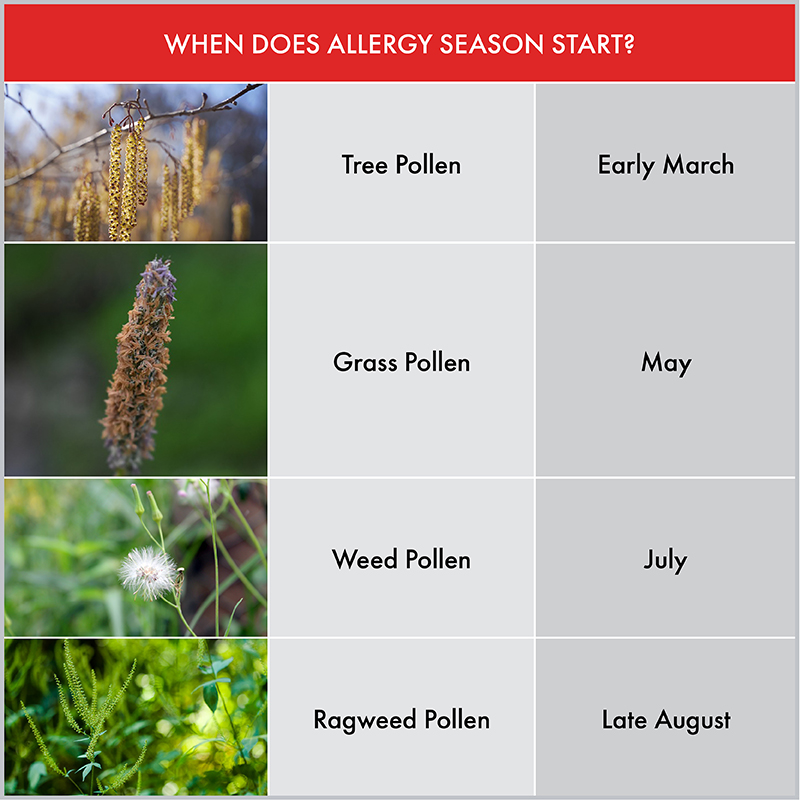It’s summertime. We're heading towards warmer temps and the sun is shining. Kids are off from school and your schedule is jam-packed. While you’re in the midst of planning a trip to the beach or a ball game, you’re basking in summertime sadness because you’re an allergy sufferer. Your summer plans have come to a sudden halt. You find yourself scheduling around itchy, watery eyes, sneezing, wheezing and an increased pollen count.
For those that suffer from allergies, ADVENT knows the frustration of dealing with snotty symptoms and that a walk in the park is anything but a walk in the park. We’re here to explain the common types of summer allergies and how ADVENT can help you find relief during the allergy season.
So, what is an allergy anyway?
An allergy is an overactive immune system response to an allergen through inhalation, swallowing, injection or absorption by the skin. At ADVENT, we see summer allergies related to pollen, dust, mold and dander. Here is when to expect your summer allergy symptoms to kick in:

Common Allergy Symptoms
ADVENT’s goal is to help you breathe well, sleep well and get you back to living the life you were meant to live. When it comes to allergies, our primary concerns are those that effect your ability to breathe and may induce asthma. Common allergy symptoms include a runny nose or nasal congestion, nasal itching and irritation, sneezing, mouth breathing and throat clearing. Additionally, you may be suffering from watery eyes, chronic fatigue, a diminished sense of taste or smell, hearing loss and more.
ADVENT's Approach to Allergies
At ADVENT, we want to get to the root of your sinus and sleep concerns caused by allergies. If allergies are suspected to be an underlying issue to your sinus and sleep concerns, you’ll meet with a highly trained Physician Assistant or Nurse Practitioner, specializing in allergies, to review your health history and perform an assessment of The Breathing Triangle®. We will then conduct a skin test to determine which allergens trigger your symptoms. If deemed necessary, we will perform an intradermal test to assist in quantifying the allergy and to ensure nothing was missed during the skin test.
Once the results of the allergy test have been reviewed, our team will create a treatment plan unique to you. Allergy management may include a 3-tier plan:
- Avoidance: Eliminate or avoid contact with the identified, offending allergen. Unfortunately, some allergens such as dust or mold may be difficult to avoid entirely.
- Pharmacotherapy or Medical Management: Medications can assist in limiting the systems of allergies, including antihistamines, decongestants, nasal sprays and other types of products.
- Immunotherapy: With the aid of immunotherapy in the form of injections or taken orally, we can alter the body’s overactive response by challenging your immune system and reduce your need for allergy medications and avoidance. This process may take up to 3-5 years to complete and alter your immune response to allergens.
Your provider may also discuss additional options to help manage the symptoms that may be a reflection of your anatomy or a separate underlying issue. Simple in-office procedures like the 60-second Nasal Cryotherapy with Clarifix® can help to alleviate your constant runny nose.
Trying to address your sinus and sleep concerns is frustrating and exhausting. At ADVENT, we’ll take the necessary steps towards addressing your sinus and sleep concerns and getting you back to that summertime stride.


